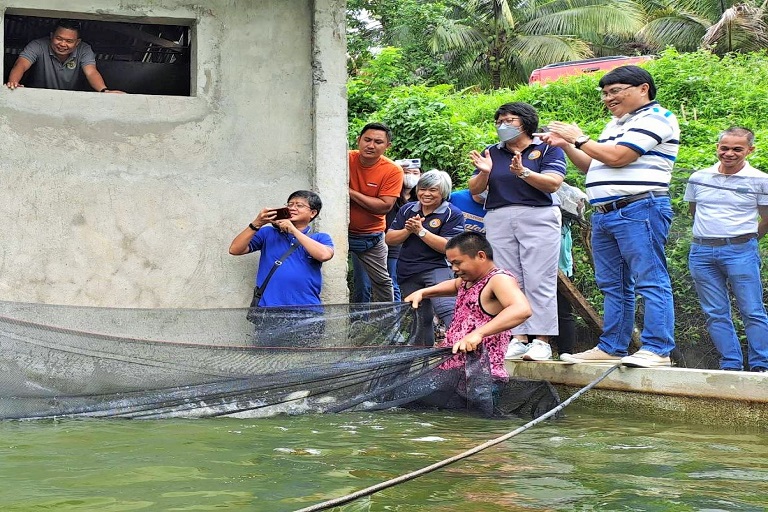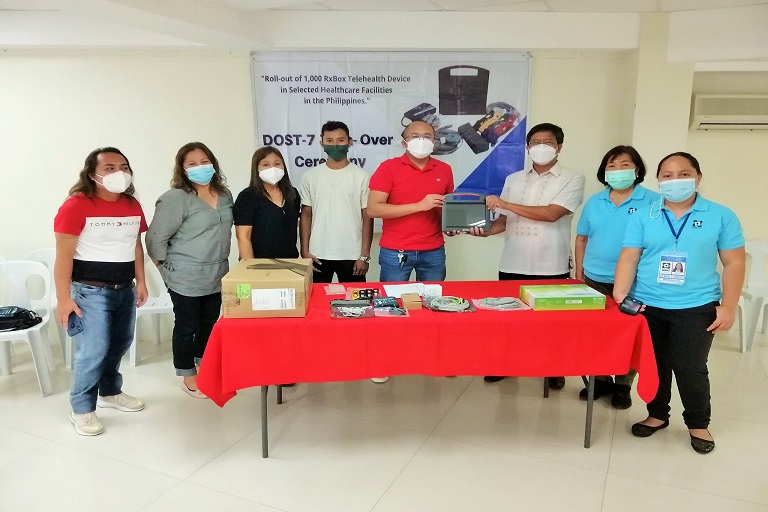DUMAGUETE CITY, Negros Oriental (PIA) -- The Department of Science and Technology (DOST) Region 7 will highlight the various science and technology interventions for the advancement of the blue economy in the region in the upcoming celebration of Regional Science and Technology Week (RSTW) which will be held in this city.
The RSTW is slated on Sept. 20 to 23.
DOST Negros Oriental Provincial Director Atty. Gilbert Arbon said the city’s hosting of the RSTW is significant as the city is known as a “university town beside the sea.”
Arbon said the RSTW’s aim to promote blue economy this year is relevant, with the theme: “Siyensiya, Teknolohiya, at Inobasyon, Kabalikat sa Matatag, Maginhawa at Panatag na kinabukasan” and sub-theme “Creating and protecting wealth for a sustainable blue economy.”
He said DOST Sec. Renato Solidum will be attending the opening rites of the RSTW on Sept. 20 at Robinsons Place Dumaguete.
Blue economy
In 2019, the National Academy of Science and Technology (NAST) said the blue economy has a potential value of $900 billion, which could propel the nation into progress.
This covers marine–based economic activities such as fisheries, marine tourism, and shipbuilding.
According to the World Health Organization, blue economy is the "sustainable use of ocean resources for economic growth, improved livelihoods, and jobs while preserving the health of the ocean ecosystem."
“We are benefitting from the blue economy whenever we buy fish from the market or a can of sardines or when we go to the beach as tourists or buy salt. We get wealth from the sea in terms of fisheries, aquaculture, seaweeds, and salt. It’s not just the raw materials naa pay processing. Gi-manufacture pa na. Gi-process pa into canned goods (It’s not just the raw materials but these also involves manufacturing and processing of these materials into canned goods),” Arbon said.
Aside from this, the tourism sector can also take advantage of the blue economy as tourists going to renowned dive sites in the province, such as Apo Island, can also generate revenues for the local economy.
Arbon also noted the importance of striking a balance between harnessing the potential of the country’s marine resources for development and environmental preservation.
“We have to have sustainable development because we cannot keep on extracting resources and not expecting adverse effects. There have been efforts like USAID’s ‘Fish Right.’ Otherwise, no more fish left. We really welcome that approach,” he said.
The provincial DOST director also hopes that there will be a department-level organization in the government that would solely look into the country’s marine, coastal, and other aquatic resources, including ocean thermal energy and other assets, to better manage the country’s blue economy.
STARBOOKs Nature
This year’s RSTW will also be highlighted by the launching of the STARBOOKs Nature App on September 20 at Robinsons Place Dumaguete.
STARBOOKS or the Science and Technology Academic and Research-Based Openly Operated Kiosks, a project of the DOST-Science and Technology Information Institute (STII), is an offline science library-in-a-box containing thousands of digital resources on science, technology, engineering, and mathematics (STEM) that are easily retrievable.
STARBOOKS NATURE is a customized, environment-oriented version of STARBOOKS.
It is designed to be an interactive and tourist-friendly information kiosk.
The RSTW will also feature a Regional Research, Development, and Innovation (RDI) Congress on Blue Economy Development on September 23 in Foundation University.

nuLAB
The DOST Science Education Institute (SEI)’s learning bus called “nuLAB” will be visiting Dumaguete City in time for the RSTW to provide an interactive, state-of-the-art learning experience for senior high school students.
The “nuLAB” will feature modules on oceanography, science media literacy, entomology, and environmental science among others to further raise students’ knowledge on these subjects.
Arbon is inviting the public to participate in the activities lined up for the RSTW celebration.
The weeklong celebration will also feature talks, exhibits, seminars, at Robinsons Place Dumaguete and selected universities in the city. (RAL/PIA7-Negros Oriental)




